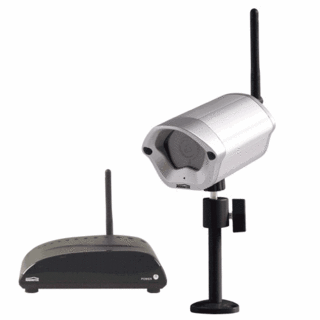AMD prepares to wield SledgeHammer.
Published:
9 October 1999 y., Saturday
The code name for the eighth-generation microprocessor from Advanced Micro Devices (AMD) may indicate what the company would like to use on rival Intel Corp._s 64-bit chip: a SledgeHammer.
Fred Weber , AMD_s vice president of engineering, provided details about the x86 64-bit architecture at the Microprocessor Forum on Tuesday, and also outlined plans for a future system bus, called Lightning Data Transport. The x86 64-bit architecture from AMD will allow users to continue running 32-bit applications while they make the transition, according to a statement from AMD. Current applications usually have no need for a 64-bit instruction set and don_t need to be ported, so AMD intends to provide 64-bit processors that can tell whether a particular application needs 32-bit or 64-bit power and adjust accordingly, the company said. As for Lightning Data Transport, AMD described it as an internal interconnect between chips that can reach bandwidth of as much as 6.4G bits per second per connection. The future system bus will have an internal data link allowing bandwidth increases for I/O (input/output), co-processing and multiprocessing. Neither the statement from AMD nor Weber gave an indication of when the system bus and eighth-generation microprocessor will be available to customers. Whenever AMD does roll out the system bus and SledgeHammer, Intel apparently won_t be fretting. Ron Curry, director of marketing for Intel_s IA-64 division was asked in an interview if he views SledgeHammer as competition for, Itanium, Intel_s first 64-bit chip which had been code-named Merced and is due out in the middle of next year. "I know what Intel is having to spend to develop and establish IA-64 in the market and I really would have to question the viability of anyone else doing such a thing," Curry said. Intel also has said that Itanium will be backward-compatible with 32-bit applications. Both Intel and AMD are aiming the new 64-bit chips at powerful servers in the market now dominated by RISC (reduced instruction set computer) chips from Sun Microsystems Inc. and others.
Copying, publishing, announcing any information from the News.lt portal without written permission of News.lt editorial office is prohibited.
The most popular articles
Software company announced new structure_ of it_s business.
more »
 Just a few weeks ago, the world's tiniest video camera was as small as a grain of rice. Today, the world's NanoEst camera is even smaller.
more »
Just a few weeks ago, the world's tiniest video camera was as small as a grain of rice. Today, the world's NanoEst camera is even smaller.
more »
 During the experiment two research groups managed to overcome a symbolic 100 TB/s optical fiber data transmission speed limit.
more »
During the experiment two research groups managed to overcome a symbolic 100 TB/s optical fiber data transmission speed limit.
more »
 Apple’s long–awaited online storage service for iTunes could be named iCloud, if only rumours are to be believed.
more »
Apple’s long–awaited online storage service for iTunes could be named iCloud, if only rumours are to be believed.
more »
 The founders of video-sharing site YouTube have bought bookmarking service Delicious from Yahoo.
more »
The founders of video-sharing site YouTube have bought bookmarking service Delicious from Yahoo.
more »
 The successful raid by hackers on Sony’s PlayStation Network is already being ranked among the biggest data thefts of all time.
more »
The successful raid by hackers on Sony’s PlayStation Network is already being ranked among the biggest data thefts of all time.
more »
 Apple has denied that its iPhones and 3G iPads have been secretly recording their owners' movements.
more »
Apple has denied that its iPhones and 3G iPads have been secretly recording their owners' movements.
more »
 Customers who have waited nearly 10 months for the white version of the iPhone 4 won’t have to wait much longer. The Great White iPhone 4 is finally here.
more »
Customers who have waited nearly 10 months for the white version of the iPhone 4 won’t have to wait much longer. The Great White iPhone 4 is finally here.
more »
 Researchers at Georgia Tech University are teaching a robot the basics of dialogue. Named "Simon", the robot has already been taught how to attract a person's attention but eventually, it's hoped he'll be able to interact and converse with humans in daily life.
more »
Researchers at Georgia Tech University are teaching a robot the basics of dialogue. Named "Simon", the robot has already been taught how to attract a person's attention but eventually, it's hoped he'll be able to interact and converse with humans in daily life.
more »
 3D? Terribly lame when it's tossed into devices as a bullet point feature. Trimensional for iPhone takes a picture of your face and maps your mug in a 3D model.
more »
3D? Terribly lame when it's tossed into devices as a bullet point feature. Trimensional for iPhone takes a picture of your face and maps your mug in a 3D model.
more »
 The European Union is to investigate whether internet service providers (ISPs) are providing fair access to online services.
more »
The European Union is to investigate whether internet service providers (ISPs) are providing fair access to online services.
more »